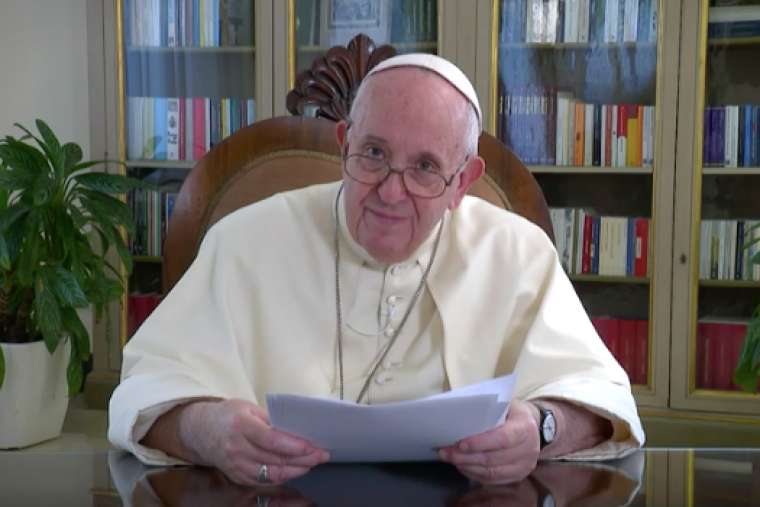Pope Francis’ video message to TED Countdown posted Oct. 10, 2020.
Pope Francis sent a video message to the TED Countdown summit on climate change yesterday explaining how a more “integral ecology” can help the poor.
“Science tells us, with more precision every day, that urgent action is needed – and I am not exaggerating, this is what the science says – if we are to have any hope of avoiding radical and catastrophic climate change. And for this, we must act now. This is a scientific fact,” Pope Francis said in the video posted online yesterday.
“Conscience tells us that we cannot be indifferent to the suffering of the poorest, to growing economic inequalities and social injustices. And the economy itself cannot be limited to production and distribution. It must necessarily consider its impact on the environment and the dignity of the person,” he added.
Pope Francis’ video message was one of many sent by celebrities and public figures from around the world for the virtual TED Talk summit. Prince William, Al Gore, Chris Hemsworth, and Mark Ruffalo also urged action to prevent climate change in the global launch of TED Countdown.
“We are faced with the moral imperative, and the practical urgency, to rethink many things: how we produce, how we consume, think about our culture of waste, the short-term vision, the exploitation of the poor, the indifference towards them, increasing inequalities and dependence on harmful energy sources,” the pope said.
In his virtual TED talk, Pope Francis proposed three steps that can be taken to implement an “integral ecology” to respond to the needs of the poor by caring for creation.
The first step is “education in the care of the common home” to help people understand that “environmental problems are linked to human needs,” he said.
The pope’s second step is to focus on water access and adequate nutrition.
“Access to safe and safe water is an essential and universal human right. It is essential because it determines the survival of people and for this reason, it is a condition for the exercise of all other rights and responsibilities. Ensuring adequate nutrition for all through non-destructive farming methods should then become the fundamental purpose of the entire cycle of production and distribution of food,” he said.
The third proposal put forth by Pope Francis is “a gradual, but immediate, replacement of fossil fuels with clean energy sources.”
“This transition must not only be rapid and capable of meeting present and future energy needs, but it must also be attentive to the impacts on the poor, on local populations and on those who work in the energy production sectors,” he said.
The pope pointed viewers toward his encyclical letter Laudato Si’ to learn more about “care for our common home.” He said that his recently published encyclical Fratelli Tutti also touches on this topic in how to build a better future.
“It will be necessary to go step by step, to help the weak, to persuade the doubters, to imagine new solutions and to commit to carrying them out. But the goal is clear: to build, in the next decade, a world where we can respond to the needs of present generations, including everyone, without compromising the possibilities of future generations,” he said.
Source: CNA

